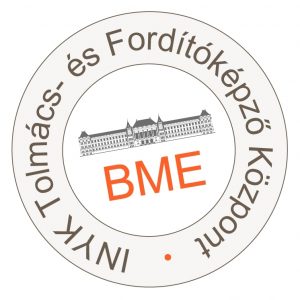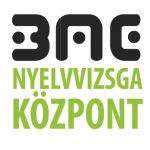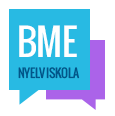About us
The University of Technology and Economics has always recognised the importance of the teaching of foreign languages, including technical language. The Bme Centre for Modern Languages of the various faculties were combined into the Institute of Modern Languages in 1970. As its responsibilities expanded, the institute assumed a new name: BME Centre for Modern Languages. Today the centre is an independent organizational unit within the Faculty of Economic and Social Sciences with 58 lecturers and language teachers and 23 administrative staff working full-time at the Centre, along with 40 freelance language lecturers and hundreds of accredited examiners who support its language testing work. The Centre’s task is to develop the students’ written and oral communication skills in foreign languages. Its objective is to provide them with language skills that, along with the knowledge of their profession, will enable them to keep pace with the latest developments of the rapidly changing scientific world throughout their studies, and later to participate in international scientific life.
Research
The centre conducts wide-ranging research activities in terms of the diversity of projects it undertakes. The centre’s main focus of activity (foreign language education) means that a prominent role is given to studying the methodology of language competence evaluation, the results of which then are incorporated in the language teaching at the institute. Another related activity of the centre is preparing and updating teaching materials for various courses, which requires continuous materials development work. The research fields of faculty members who possess, or are studying for doctoral (PhD) degrees include: linguistic aspects of technical language education, research into technical language teaching methodology and studies of features of intercultural communication. The results of research into contrastive linguistics are primarily applied in the centre’s work training technical translators and interpreters. Other research fields of the centre include language testing and quality assurance. Within the framework of the Workshop of Applied Linguistics at the Centre for Modern Languages, internal training sessions are organized on current areas of research, including professional seminars which provide a forum for PhD dissertations to be presented. Every year, on average, 25-30 students participate in the language sections of the Conference of Students’ Scientific Circles organized by the Centre for Modern Languages in the following languages: English, German, French, Italian, and Spanish. The centre provides consultancy on specific topics in cooperation with lecturers of various departments.
International relationships
Our Centre maintains active professional relationships with numerous foreign institutions, including Lessius Hogeschool Antwerpen, ISIT Institut Catholique de Paris, Haute Ecole Leonardo de Vinci – Institut Libre Marie Haps Brussels, INSA de Rennes, Scuola Superiore per Mediatori Linguistici di Milano, Universidad Politécnica de Madrid, Universidad de Valladolid, Universitate Regensburg, Spokane Falls Community College and Université de Strasbourg ITI-RI.
I. specialised translator and interpreter training
The Centre for Interpreter and Translator Training (TFK) (www.tfk.bme.hu) is an independent unit operating as part of the Centre for Modern Languages (INYK). It is hailed as one of the leading translator and interpreter training centres in Hungary with a 25-year history.
TFK currently offers five study programmes in translation and interpreting in six foreign languages in combination of Hungarian.
- Postgraduate Programme in Specialised Translation and Interpreting for Technical, Economic and Social Sciences (in combination of oneforeign language and Hungarian; available languages: English, French, German, Italian, Russian and Spanish). It is a 4-semester part-time course (with evening classes) that has run continuously since it was established in 2016.
- Postgraduate Programme in Specialised Translation for Technical, Economic and Social Sciences (in combination of one foreign language and Hungarian; available languages: English, French, German, Italian, Russian and Spanish). It is a three-semester programme that can be completed as a part-time course(with evening classes) OR as a distance learning course. The part time course with evening classes run from September; the distance learning scheme starts from February each year.
- Postgraduate Programme in Specialised Translation for Economic and Technical Sciences and the European Union (in combination of one foreign language and Hungarian; available languages: English). It is a one-year full-time coursewith 15-17 hours per week. The course has been available since it was established in 2016.
- Postgraduate Programme in Conference Interpreting with Two Foreign Languages(in combination of two foreign languages and Hungarian, available in English, French, German, Italian, Russian and Spanish). It is a one-year full-time course with 18 hours per week.
- Postgraduate Programme in Business and Conference Interpreting (in combination of Hungarian and one foreign language (English, French, German, Italian, Russian and Spanish). It is a one-year full-time coursewith a mixture of on-site and remote interpreting classes. The first course will be launched from September 2023.
TFK regularly reviews its programmes to respond to newly emerging market demands. The Centre enjoys a high prestige because
- the majority of the courses are taught by external professionals with hands-on market experience;
- it offers a four-month-long mentoring scheme for full-time and part-time trainees on a voluntary basis as an extracurricular block where they can work with a mentor from the market on pro bono translation and/or interpreting assignments;
- it organises a recurring event referred to as ‘Trainees meet Professionals’ every semester with a view to bringing together the key stakeholders of the knowledge triangle (i.e., trainers, trainees and market players);
- it also undertakes an innovative initiative, the ‘Trainer-Trainer Talks’ (i.e., workshops, meetings, discussion fora), to which fellow trainers from other interpreter and translator training institutions from across the country are invited.
II. examination centre
The BME Centre for Modern Languages has been an accredited language examination centre since 2000. The centre’s general bilingual exam system in English, French, German, Italian and Spanish was also accredited by NYAT at this time. Within the ‘LSP for Engineering’ exam system, the monolingual Hungarian as a foreign language exam was accredited in 2001, then its bilingual English, French, German and Russian exams followed in 2002. The centre also developed ‘LSP for Economics’ within its LSP exam system and gained accreditation for English exams in 2004, and for French and German in 2006. Today BME exams can be taken in almost 40 locations, providing nationwide coverage. On average the number of candidates taking BME language examinations is over 10,000 a year. In 2013 the BME’s general monolingual examination system was accredited in English, French, German, Italian, and Spanish.
III. language school
The BME Language School is the language school of the Centre for Modern Languages which organizes general examination preparation courses and refresher courses including ones with undergraduate course content in English, German, French, Italian and Spanish for external students. The centre also offers mock BME examinations at pre-arranged times, which can be registered for in person or online at the above address. The Language School also organizes on-site courses for companies.
The activities of the Centre for Modern Languages also cover a broad range of research fields, such as translation and interpreting studies, terminology and applied lingustics.





